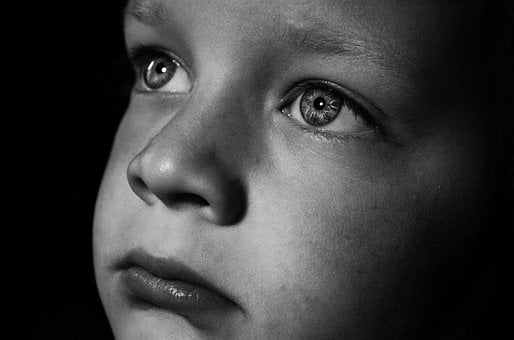Mandatory Reporting Training

The Crucial Role of Child Care Providers as Mandatory Reporters
Child care providers often find themselves in a unique position of responsibility and trust, caring for the well-being of children in their charge. Beyond the daily tasks of nurturing and educating these young minds, there's another aspect to their role that's equally critical – mandatory reporter training. In this article, we will explore the importance of child care providers as mandatory reporters and how they play a crucial role in safeguarding the welfare of children.
Understanding Mandatory Reporting
#Mandatory_reporting is a legal requirement that obligates certain professionals, including child care providers, to report any suspected instances of child neglect or abuse. This responsibility extends far beyond the ordinary duty of childcare providers and is rooted in the need to protect vulnerable children from harm.
Each state in the United States has its own specific set of requirements outlining when a mandatory reporter must file a report. In general, when a childcare provider, in their official capacity, suspects or has reason to believe that a child under their care has been subjected to abuse or neglect, they are legally obligated to report it. Moreover, reporting is also mandated when the provider becomes aware of or observes conditions that could reasonably result in harm to the child.
Recognizing the Signs of Abuse
To fulfill their role as mandatory reporters effectively, child care providers must be well-trained in recognizing the signs of abuse or neglect. While it is essential to emphasize that providers do not need absolute certainty of abuse, reasonable suspicion is enough to trigger the reporting process.
Signs of abuse can manifest in various ways, and it's crucial for child care providers to stay vigilant. Some common indicators may include unexplained bruises or injuries, a child's withdrawal from certain adults, and complaints of discomfort, especially when it comes to sitting or using the bathroom.
Reporting Procedure
Reporting suspected abuse or neglect is not a casual process but rather a formal and structured one. Child care providers must follow a specific reporting procedure outlined by their respective state authorities. This usually involves contacting the appropriate agency or hotline dedicated to child protection.
The reporting process is not designed to be punitive but instead serves as a mechanism to investigate and address potential abuse or neglect. Child care providers act as a vital link in this chain of protection, ensuring that the welfare of the child remains paramount.
Mandatory Reporting Training
Proper training in recognizing signs of abuse and understanding the reporting procedure is essential for all child care providers. To equip themselves with the knowledge and skills necessary for this crucial role, childcare professionals can enroll in mandatory reporting training courses.
One such resource is ChildCareEd, which offers a range of training courses tailored to the needs of child care providers. These courses cover topics like
- Recognizing and Reporting Child Abuse and Neglect
- Abuse and Neglect: Signs and Reporting
- Mandated Reporters
- 1-Hour Abuse and Neglect Training
By participating in these courses, child care providers can gain the expertise needed to fulfill their role as mandatory reporters effectively.
Conclusion
Child care providers play a vital role in the protection of children. As mandatory reporters, they have a legal and ethical obligation to report any suspected instances of child neglect or abuse. Recognizing the signs of abuse, understanding the reporting procedure, and staying vigilant are all part of their duty to safeguard the well-being of the children they care for.
Mandatory reporting training is not just a requirement but a responsibility that ensures that child care providers are equipped with the knowledge and skills needed to protect the most vulnerable members of our society – our children.
- The Prepared Environment: Montessori Class Design
- Abuse and Neglect: Signs and Reporting
- Mandated Reporters
- Basic Life Support (BLS) Blended Healthcare Providers
- Abuse and Neglect: Signs and Reporting
- 1-Hour Abuse and Neglect Training
- Access for All: Inclusion and the ADA
- Recognizing and Reporting Child Abuse and Neglect
- Childhood Neglect
- Mandatory Reporters
- Mandatory Reporting Training
- Maximizing Efficiency with ChildCareEd's Group Admin Account
- Child Care Licensing in Texas: What You Need to Know to Stay Compliant
- Child Care Licensing in Texas: Requirements, Updates, and Compliance Tips
- MSDE Basic Health and Safety: What Maryland Childcare Providers Need to Know
- Child Abuse and Neglect Training: Empowering Educators to Recognize and Respond
- Cribs, Crafts & Connecticut: Launch Your In-Home Daycare!
- Navigating the Rules: Licensing and Regulations for Your In-Home Daycare
- Navigating the Licensing and Regulations for Your Daycare
- 🩺 How Do Nevada Childcare Providers Stay Compliant With Immunization & Health Record Rules? ✔️
- 🍼📋 What Do You Need to Work in Childcare in Texas?
- 📚 Which Trainings Are Required for Childcare Staff in California?
- What Training Do I Need for Childcare in Nevada?
- 👶 New to Illinois Childcare? Here Are the Mandatory Training Topics You Must Know! 📚
- 🚨 Mandatory Reporting in Nevada
- Mandated reporting: what to document and how to respond
- Affordable Child Care Training Options for Providers in Oklahoma
- What child care policies does every program need?